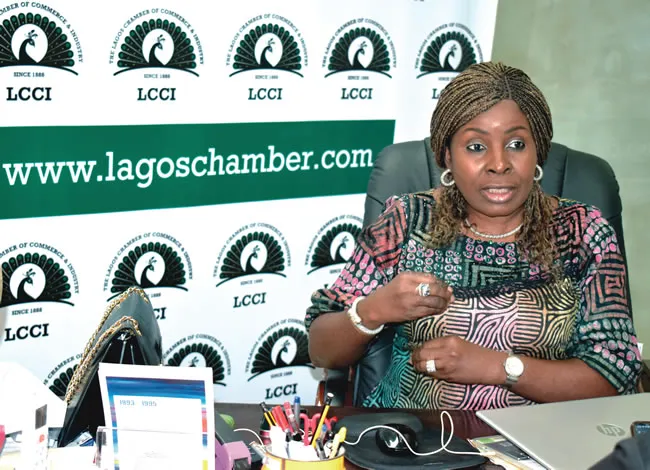The Lagos Chamber of Commerce and Industry (LCCI) says the expatriate employment levy (EEL) launched by the federal government is harmful to the country’s drive for foreign direct investments (FDIs).
Chinyere Almona, the chamber’s director-general, spoke in a statement, titled, ‘LCCI Perspective on Nigeria’s Expatriate Employment Levy (EEL)’.
Almona expressed concern about the likely perception by foreign investors that the Nigerian government “is not accommodative to foreign workers”.
She warned that such perception would harm the country’s drive for FDI, calling for a balanced approach to expatriate employment.
“The point must be made that maintaining expatriates in Nigeria is expensive and as such our members only bring in expatriates for very critical roles that require highly technical skills that are not readily available locally,” the director-general said.
“It is out of necessity that our members bring in expatriates and as such any imposition that makes this provision expensive will discourage them and jeopardise projects requiring such expatriates.
“While the chamber is fully in support of government policies that enhance the profile of the business environment, generate more revenue for the government, and create more opportunities for local employment, we are concerned about likely perception by foreign investors that the Nigerian government is not accommodative to foreign workers.
“This perception is harmful to our drive for FDI inflows. With the drive for FDI, the country needs conducive business environment to attract these kinds of investment into the country.
“Only $184 million FDIs came to Nigeria in the fourth quarter of 2023 out of $1.088 billion capital importation that was recorded within the period.”
Almona urged the government to consider exempting industries that demand specific skill sets for local projects, notably in construction and other sectors experiencing shortages in goods to match the growing demand.
“In sectors where the country lacks capacity to boost supply of critical products, like food, cement, drugs, and other agricultural inputs, we urge the government to charge concessionary or totally exempt the manufacturers in these fields to encourage them to come in and boost supply of such scarce products,” she said.
The director-general cautioned that the actions of the federal government could lead to reciprocal measures from other nations, potentially jeopardising remittances from Nigerians living abroad, who would be directly affected by such retaliatory policies.
She said issues like the levies on foreign workers with tax implications would have been brought before the presidential committee on fiscal policy and tax reforms for inputs that aligned with their mandate of improving the business environment.
Since the EEL was launched on February 28, 2024, stakeholders have continued to respond disapprovingly to the provisions of the policy.
The Nigeria Employers’ Consultative Association (NECA) faulted the policy, describing it as “exploitative”.
‘TINUBU SHOULD PUT A HOLD ON IMPLEMENTATION’
Similarly, a public procurement advocacy group, known as the Network for the Actualization of Social Growth and Viable Development (NEFGAD), asked President Bola Tinubu to put a hold on the implementation policy.
In a statement on Friday, Akingunola Omoniyi, head of office, NEFGAD, expressed concern about the possible diplomatic implications of the policy.
Omoniyi said the regulation could elicit reciprocal measures from foreign nations whose citizens are required to pay substantial fees for investing or working in Nigeria.
He said the EEL is highly discriminatory and likely to create significant diplomatic, legal, and economic challenges for the country — contrary to the intentions of its proponents.
Akingunola said halting the policy’s implementation would allow for thorough deliberations by the national assembly and other relevant stakeholders.

